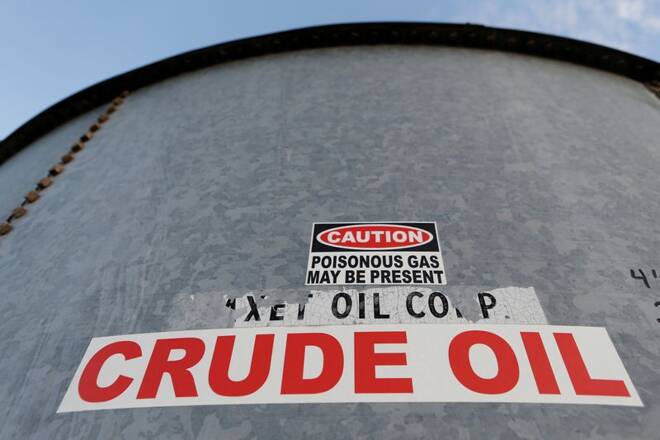Advertisement
Advertisement
Oil dips, focus on OPEC+ response to U.S.-led oil release
By:
MELBOURNE (Reuters) - Oil prices ticked lower on Thursday with investors waiting to see how major producers respond to the emergency crude release by major consuming countries designed to cool the market, even as data pointed to healthy U.S. fuel demand.
By Ahmad Ghaddar and Rod Nickel
(Reuters) -Oil prices dipped in thin trading on Thursday, the U.S. Thanksgiving holiday, as investors eyed how major producers respond to the U.S.-led emergency oil release designed to cool the market and with OPEC now expecting the release to swell inventories.
Brent crude futures had slipped 8 cents, or 0.1%, to $82.17 a barrel by 1:02 p.m. ET (1802 GMT). U.S. West Texas Intermediate (WTI) crude futures fell 36 cents, or 0.5%, to $78.03 a barrel.
OPEC expects the U.S. release to swell a surplus in oil markets by 1.1 million barrels per day (bpd), a source from the group said.
The Organization of the Petroleum Exporting Countries, Russia and allies, together called OPEC+, will meet on Dec. 1-2 to set policy.
“Given the holiday in the U.S. and with (trading) volumes light, I think the market is digesting the releases we’ve seen announced, and wondering what reaction we might see from OPEC+,” said Andrew Lipow, president of Houston-based Lipow Oil Associates.
Trading lacked a clear direction as the timing of the releases remains uncertain, Lipow said.
OPEC+ has been adding 400,000 barrels per day of supply since August, unwinding record output cuts made last year when pandemic curbs slammed demand.
Three sources told Reuters that OPEC+ is not discussing pausing its oil output increases, despite the decision by the United States, Japan, India and others to release emergency oil stocks.
OPEC members the United Arab Emirates and Kuwait said they were fully committed to the OPEC+ agreement and had no prior stance ahead of next week’s meeting.
Iraq, also an OPEC member, said it backs continuing OPEC+’s existing plan of raising output by 400,000 bpd a month, saying the outlook for the oil market was unclear due to turbulence in global markets.
High oil prices have added to inflationary concerns. A coordinated release could add around 70-80 million barrels of crude supply to markets, analysts at Goldman Sachs said.
The U.S. Department of Energy has launched an auction to sell 32 million barrels of strategic petroleum reserves (SPR) for delivery between late December to April 2022. It plans to release another 18 million barrels soon.
Traders are also looking out for whether China will follow through on plans to release oil from its reserves.
U.S. Energy Information Administration data on Wednesday showed gasoline and distillate stockpiles fell more than expected, while crude stocks rose. [EIA/S]
(Additional reporting by Sonali Paul in Melbourne, Florence Tan in Singapore; Editing by Kirsten Donovan and Bernadette Baum)
About the Author
Reuterscontributor
Reuters, the news and media division of Thomson Reuters, is the world’s largest international multimedia news provider reaching more than one billion people every day. Reuters provides trusted business, financial, national, and international news to professionals via Thomson Reuters desktops, the world's media organizations, and directly to consumers at Reuters.com and via Reuters TV. Learn more about Thomson Reuters products:
Advertisement
